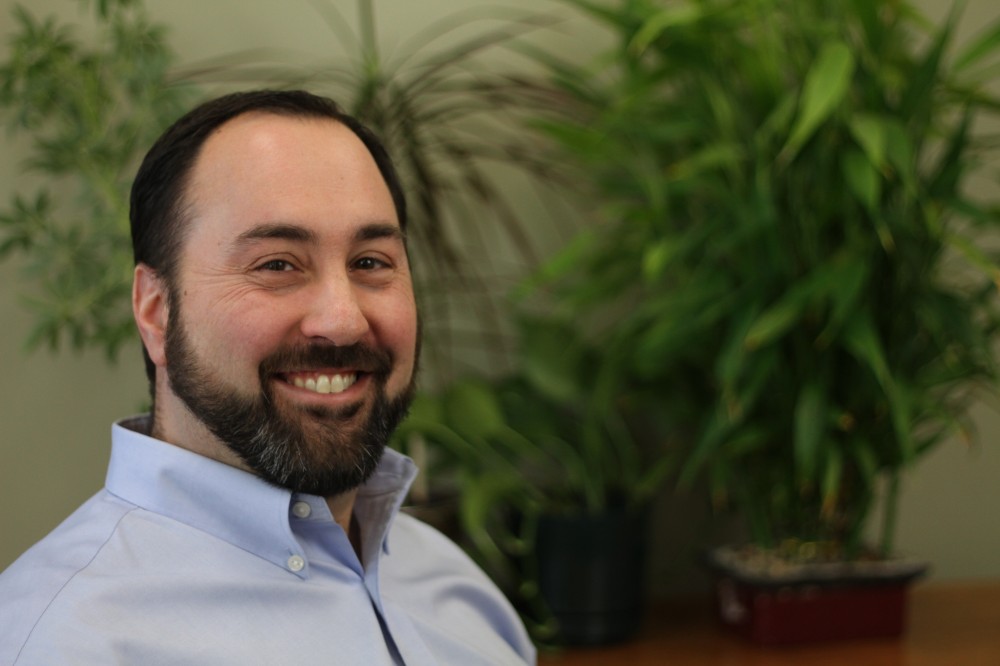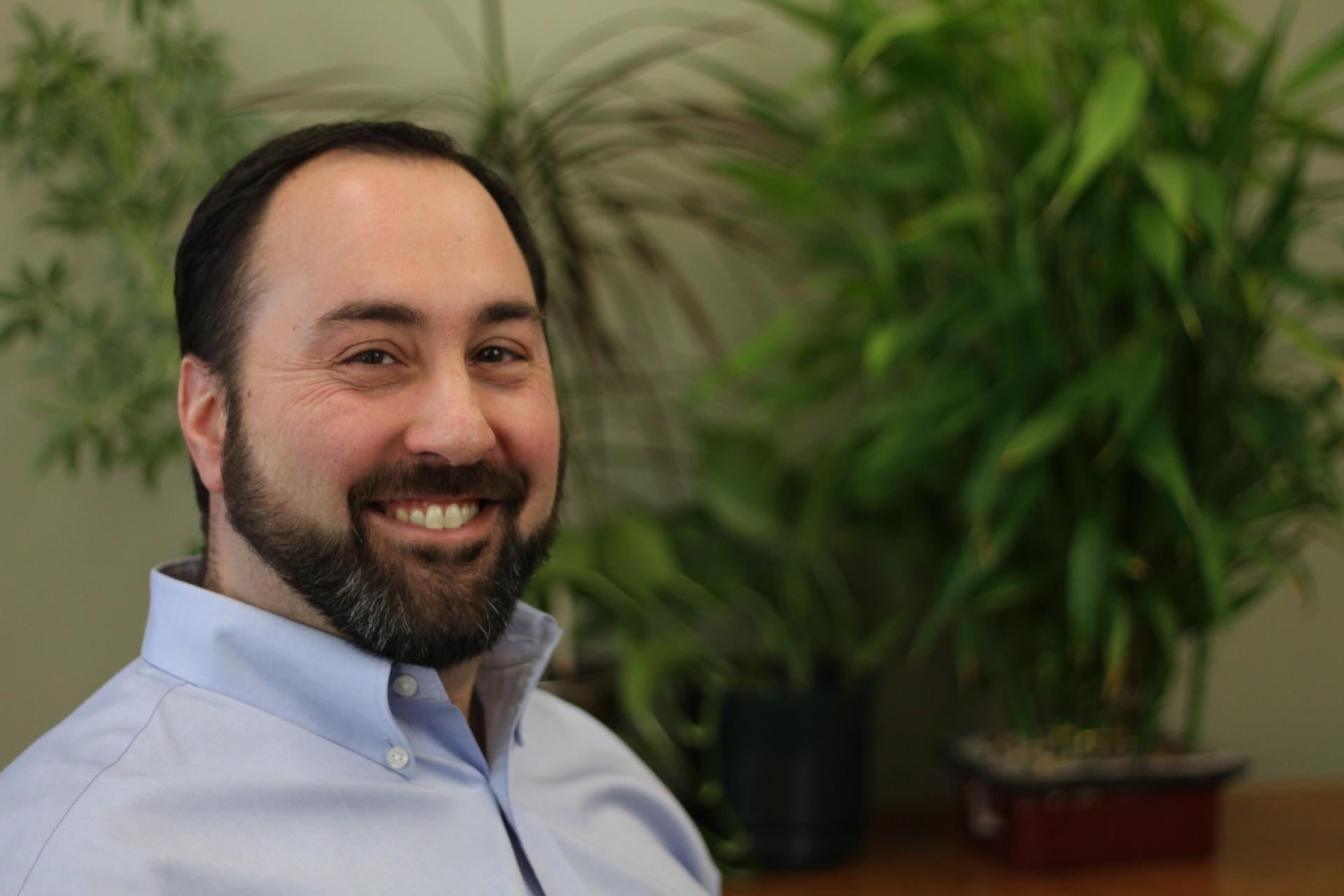Getting to Know HRP's New CFO: Not Your Average Joe
August 3rd, 2020
COO/President Tad Goetcheus and CEO Dan Titus were joined this year by a third executive team member. Joe Cardinale is officially HRP’s Chief Financial Officer. We sat down with Joe to hear more him and his role at the company.
1. What’s the background that brought you to this position?
I started off as an accounting assistant needing money, but I really enjoyed accounting. I started off in accounting entering timesheets doing a lot of day to day operations, writing checks, doing cash receipts and just familiarizing myself with the functions of accounting. As I grew in the position I would learn a little more here and there. I was fortunate enough to start off with the same accounting program I use today, so I was able to learn within the system, a little here, a little there and eventually learning all of it on my own. I eventually got my masters in accounting and was able to continue growing in my position, getting in the right place, knowing you’re accounting information, learning the regulations, learning where things belong, that took me to where I am today.
2. What is a CFO and why does HRP need one?
Most companies need a CFO or someone similar. Smaller companies might not need a CFO level person, but they would need someone to manage all the finances. Mid-size companies might need a controller, but as you grow, as you become more active with acquisitions with strategic hiring with expanding revenue lines, things like that, that’s when a CFO becomes important, because a CFO for the most part is really not involved in the day to day operations of accounting. They’re not writing checks. They’re not receiving money. They’re not sending out bills, but what they’re doing is providing financial advice for the CEO or COO when we’re trying to look at different revenue streams when we’re looking to see if joint ventures or strategic hires make sense. So a CFO is certainly in charge of reporting and analyzing data but the easiest way to think of it is as a financial advisor for the company.
3. How has the structure of senior leadership changed from the previous structure?
Organizationally we haven’t changed much. There were three executives before, there are three executives now. The big difference is the old executives would do things as a committee, they would get together, make decisions and point the company in a certain direction. We streamlined it where if it’s a financial issue it comes to me, if an operational issue it will come to Tad, and if it’s an executive issue or a company direction issue it would go to Dan. We would get advice from each of us. Finance has a part in almost anyone of them, but overall there’s more of a streamlined approach to how the company directs itself and how we resolve problems.
4. How has COVID-19 affected the role you play at HRP and as the company’s financial head?
That’s a great question, the answer is it hasn’t changed much. COVID had that immediate impact of being shut down right away, so that would lead to a lot of meetings a lot of talking a lot of planning between myself, the CEO, the COO, just to get things done, we had to come up with plans, we had to come up with ideas, we had to look at what was coming out from the Federal government, programs they were introducing trying to stay on top of all that information and then doing this all from home just made it a little more difficult but didn’t really change what a CFO would do A lot of what a CFO does is react to markets. Obviously COVID has caused a sharp decline. So there are things we need to look at things we need to prepare for, be proactive on. You can’t be very reactive as a CFO, if you are, things already happened and It’s too late so a lot of times that reactive reporting and things like that someone else will take care of and then the CFO will look it over. But a CFO is more involved in the Proactiveness of a company. Do there need to be furloughs or do we need to do a different revenue stream or look at any other thing to help us through any of that? CFOs go through recessions or impacts to a certain business line, but it’s usually over a slower period of time and it doesn’t impact all at once so what COVID did was just really sped up that situation, but didn’t really change anything
5. What metrics do you think are important things to monitor regularly?
There are lots of measurements that I look at, profit and losses being one of the more important ones, revenue, NSR, effective multiplier. I look for trends. I look for anomalies. Revenue obviously tells you how much you’re bringing in, net service revenue is how much labor revenue you’re bringing in so it helps you determine staffing levels. You can look at how much NSR per employee there is to measure where we need to be to be fully functional. Time Utilization does that for an employee on employee basis but NSR brings that with dollars, dollar utilization does that as well. So those are things I look at to see if HRP is running at peak efficiency. There’s the effective multiplier which is the effectiveness of our labor, to see if we’re using out labor properly. In the consulting world labor is the number one thing you’re selling, so you need to make sure that that’s working for the company. We use all those numbers. We come up with plans. We come up with improvement plans and execute them as best we can
6. As our financial officer, there may be times when you'll have to decide if an investment is profitable for the company. What is your process for determining this profitability?
The process is to look at a lot of factors. We don’t just look at profit and loss when we’re looking at acquisitions, joint-ventures, strategic hires, we really want to look at how they all effect the company as a whole. You can look at one acquisitions as quiet profitable when you buy it, but when you incorporate it into the company it might impact other lines of business. So we want to look at how it effects, the marketing department, the accounting department the admin department, we really want to see how it effects every other area of the company, create pro forma statements, see how the company would run on paper for a couple months and how it would effect other things, throw a lot of factors at it and see how it reacts so it’s a pretty long process but I feel like if you do all those and catch everything you will get to where you need to be
7. What are your goals as CFO?
My goals are aligned with the company goals. To see the company grow, we want to make sure everybody has a place at HRP, we want to be as responsible as we can fiscally. We want to make money where we can make money, save money where we can save money and this all goes to the same goal that the CEO, the COO and everybody in the company has, to be as successful as we can, to grow the company and to see HRP get bigger and bigger.
Tom Simmons, Marketing Assistant at HRP Associates, Inc.
Joe Cardinale, Chief Financial Officer at HRP Associates, Inc.









